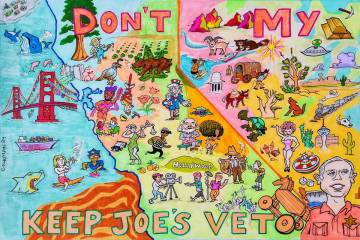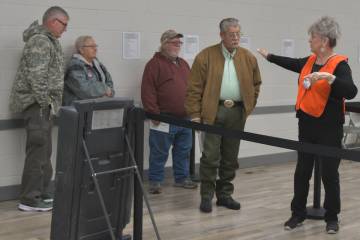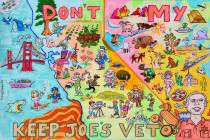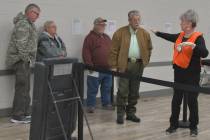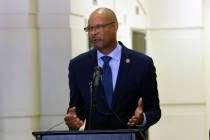Myers: Nevada and the Pulitzer Prize
My first encounter with the Pulitzer Prize was on April 18, 1977 at the Nevada Legislature when word arrived that the Nevada State Journal and Reno Evening Gazette (then jointly owned but separate newspapers) had received the award for a series of editorials denouncing a brothel owner that the newspapers had previously built up as a folk hero. The high school-style headline in that evening’s Gazette became a classic: “We win a Pulitzer Prize!”
One of the Journal/Gazette reporters covering the legislature that year was very upset. He said his newspaper did not deserve the prize, and its award seemed to him a terrible indicator of where our business was headed. He was so distressed that he sat in the public seating with one legislator and vented for an extended period of time. He eventually departed the newspaper, and journalism.
What was striking to me was that the Pulitzer jury plainly did not do any independent inquiry before awarding the prize. The newspaper’s letter to the Pulitzer organization had made a reference to the Journal/Gazette’s previous lionizing of the brothel owner but had deemphasized it.
The letter also did not make clear that the newspaper was jumping onto a community bandwagon, not leading one. Independent probing would have brought that out.
So I was hardly surprised when a Pulitzer Prize this year was awarded to the Washington Post for its rather feeble database on citizens killed by police after the Prize jury had, the previous year, rejected Nevada’s Fatal Encounters project for its more sweeping, more thorough database. Jumping on bandwagons still works—Fatal Encounters began its work two years BEFORE Ferguson, the Post AFTER Ferguson.
Fatal Encounters, originally associated with the Reno News &Review, was started by my colleague and former editor Brian Burghart, who had noticed that there are lists all over the place, including public monuments, of police officers killed on duty. He checked and discovered that lists of people killed BY police are kept much more haphazardly, if at all.
He started Fatal Encounters, which quickly became the most professional and thorough such project and attracted attention from campuses, Congress, law enforcement, and journalists around the world. The FBI started improving its data collection on the matter.
When Ferguson happened, interest in Fatal Encounters exploded and Brian was interviewed endlessly, including by the Washington Post. He suggested to the Post that they start their own database, which it did, though it has never become as thorough as FE.
Data from Fatal Encounters is changing the way people look at victims of police shootings, particularly by producing better information on how many of the victims are mentally disturbed.
Back on the topic of the Pulitzer, the 1977 brothel award was not the first Nevada Pulitzer Prize. That had been won by California’s Sacramento Bee on May 6, 1935 for a series of reports by Arthur Waugh on political influence in the selection of two Nevada federal judges. It was a story that could not be reported in Nevada because newspapers in the silver state were very cozy with state political leaders.
When the Bee won the prize, it was downplayed by jealous Nevada news entities. The Reno Evening Gazette ran the news on page 7 and then—18 days later—denounced the award in an editorial.
On April 20 2009 the Las Vegas Sun received the third Nevada Pulitzer prize for its reports on Las Vegas casino construction deaths and the breakdown of protections for workers in government, management, and unions. It is in all ways, including its ongoing impact, an admirable award.
The Pulitzer organization has long pointed to the 1979 prize given to the Point Reyes Light in Marin County, California for its fine reporting on the fascist cult Synanon as proof that small publications can win Pulitzers. But that was 37 years ago.
It’s time for them to stop living off that one award and start looking at all publications not for their circulation but for their skill and talent.
Dennis Myers is an award-winning journalist who has reported on Nevada’s capital, government and politics for several decades. He has also served as Nevada’s chief deputy secretary of state.



